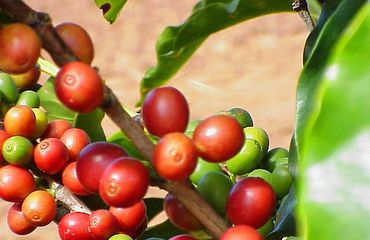São Paulo – Less coffee was exported from Brazil to Arab countries in H1 this year than in H1 2016, at 556,664 60-kg bags shipped, down 5% from a year ago. The information was made public this Tuesday (12) by the Brazilian Coffee Exporters Council (Cecafé) during a press conference in São Paulo.
Despite the drop in shipped volume, revenue soared by 25%, to USD 97 million from USD 77.6 million.
“For a few years, Syria was one of the premier Arab buyers of Brazilian coffee. Now, due to the civil war, we are witnessing a major decline,” said Cecafé technical director Eduardo Santos.
Santos pointed out that Arab countries may be importing Brazilian coffee via a different route. “We believe that Turkey is acting as one of the channels for distribution to Arab countries. We do not see [coffee] industries setting up operations in Turkey, and on the other hand they are coming up as a top-10 buyer of [green] coffee from Brazil. Our conclusion is that some country is buying coffee from Brazil and distributing it throughout that region, especially to Syria,” he pondered.
Despite citing the war in Syria as one of the reasons sales to Arab countries went down, Santos said he cannot pinpoint the exact causes for the drop in exports. “The Arab market’s share is remaining fairly flat. If we compare a bigger number of years, there have been some increments, and we believe that this [the war] might be a factor when it comes to the Arab countries,” he said.
Right now, the biggest Arab buyers of Brazilian coffee are Saudi Arabia and the United Arab Emirates. According to Santos, the region imports mostly Arabica-type coffee. So far, he said, Arab countries are not buying specialty coffee from Brazil, but the market tends toward this.
“This market is not yet rated as a specialty coffee market. It’s improving. It’s a market that is growing mature, and we believe that some Arab countries may stand out in years to come,” he said.
Despite the instability stemming from the conflict in Syria, Cecafé’s director does not expect sales to Arab countries to drop any further. “With the exception of Syria, we believe that the Arab region is an important, strategical region for Brazil. We believe that once pacification has taken place, the Arab market will become one of the leading buyers of coffee from Brazil. This is a very localized issue. There is no crisis when it comes to purchases. On the contrary, here at Cecafé we get lots of orders from Arab companies looking to buy coffee,” he said.
According to Santos, considering the sway that Arab countries hold over the Middle East and Asia, Brazilian coffee exporters must think of these countries as key markets.
The 2016/2017 crop season
At the press conference, Santos and Cecafé president Nelson Carvalhaes presented the overall results of the 2016/2017 crop season, which ended in June. From July 2016 to June 2017, 32.9 million coffee bags were exported from Brazil, down 7.42% from the 2015/2016 season, with revenue reaching USD 5.6 billion, up 5%.
Carvalhaes imputed the fact that revenue hiked although shipped volume went down to diminished supply on the global market and to a higher quality crop, which buoyed average prices.
The leading buyers of coffee from Brazil were the United States, Germany, Italy, Japan, Belgium, Russia, Turkey, Canada, France and Spain.
*Translated by Gabriel Pomerancblum




